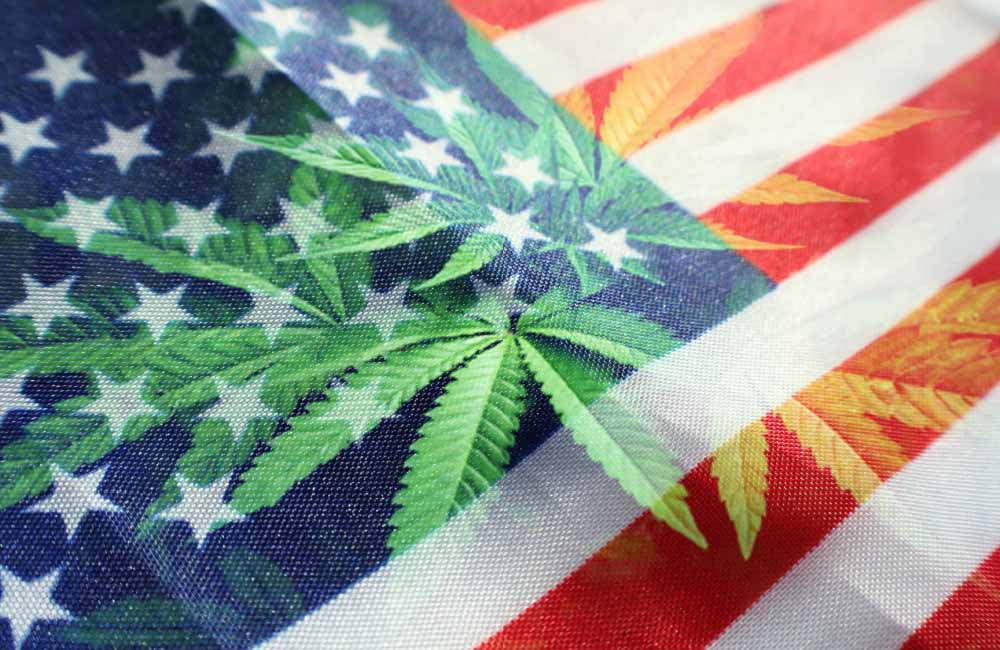Is Recreational Cannabis Legal in the U.S.?
For the cannabis curious who are looking to try it for the first time, things can get confusing. Recreational cannabis in the U.S. is governed by a patchwork quilt of laws across the country. From state ballot measures to federal policies, the legal status of recreational marijuana has undergone significant shifts in recent years, leaving many citizens wondering about the current state of affairs.
The following breaks down the issue of recreational cannabis in the U.S. It provides a quick overview and guide to where things stand with the cannabis legalization movement.
Is Recreational Cannabis in the U.S. Legal at the Federal Level?
The federal government still considers marijuana an illegal substance and classifies it as a Schedule I controlled substance under the Controlled Substances Act of 1970. This classification, which groups cannabis alongside drugs like heroin and LSD, denotes substances considered to have a high potential for abuse and no accepted medical use.
President Joe Biden, who has supported decriminalization but not legalization of cannabis, asked federal officials in 2022 to review the status of cannabis. In 2023, the Department of Health and Human Services recommended that cannabis be lowered from Schedule I to the less restrictive Schedule III. The Drug Enforcement Administration, which oversees the controlled substance schedule, has the matter under review.
Is Recreational Cannabis in the U.S. Legal at the State Level?
Despite this federal prohibition, individual states have taken matters into their own hands, leading to a patchwork of differing laws and regulations across the country.
As of early 2024, recreational cannabis is legal for adult use in states where 53% of the American population live, or about 177 million people. In all, 24 states and the District of Columbia have made recreational cannabis legal. Those states are:
- Colorado
- Oregon
- Alaska
- Nevada
- California
- Massachusetts
- Michigan
- Illinois
- Maine
- Arizona
- Montana
- New Mexico
- New Jersey
- Washington
- Vermont
- Rhode Island
- New York
- Connecticut
- Missouri
- Delaware
- Maryland
- Virginia
- Minnesota
- Ohio
These states have implemented various systems for regulating the production, sale and consumption of cannabis within their borders. Some states allow for the operation of licensed dispensaries where adults aged 21 and older can purchase cannabis products, while others have opted for state-run retail outlets or a combination of both.
Colorado and Washington made history in 2012 by becoming the first states to legalize recreational cannabis through ballot initiatives. Each state has its own set of regulations governing aspects such as possession limits, home cultivation allowances and taxation rates.
In addition to the states where recreational cannabis is fully legal, a majority of states have also enacted laws allowing for the medicinal use of cannabis. While these laws typically have more stringent eligibility requirements and are limited to patients with qualifying medical conditions, they represent another step toward broader acceptance of cannabis as a therapeutic agent.
Differences Between Federal, State Laws Lead to Challenges
Despite the trend toward legalization at the state level, the federal prohibition on cannabis continues to present challenges. One of the most significant issues is that the conflict between state and federal law creates uncertainty for businesses operating in the cannabis industry. Financial institutions, for example, may be hesitant to provide banking services to cannabis-related businesses due to the risk of running afoul of federal money laundering laws.
Another area of concern is access to banking services for cannabis businesses. Because cannabis remains illegal at the federal level, many banks are reluctant to work with cannabis-related businesses, leading to a reliance on cash transactions that can pose security risks and logistical challenges.
Efforts to address these issues at the federal level have been ongoing, but progress has been slow. In 2019, the House of Representatives passed the Secure and Fair Enforcement (SAFE) Banking Act, which aimed to provide legal protections for banks serving cannabis businesses. However, the bill has yet to be taken up by the Senate, leaving the banking issue unresolved.
In addition to the SAFE Banking Act, there have been other legislative proposals aimed at reforming federal cannabis policy. The Marijuana Opportunity Reinvestment and Expungement (MORE) Act, for example, would remove cannabis from the list of federally controlled substances and expunge prior cannabis-related convictions. While the MORE Act passed the House of Representatives in 2020, it has not advanced in the Senate.
The question of whether recreational cannabis is legal in the United States is a complex one, with differing answers depending on where you live. While a growing number of states have chosen to legalize cannabis for adult use, the federal prohibition remains a significant barrier to full acceptance and normalization of cannabis in American society.
As attitudes toward cannabis continue to evolve and more states consider legalization measures, the debate over its legal status is likely to persist for years to come.




